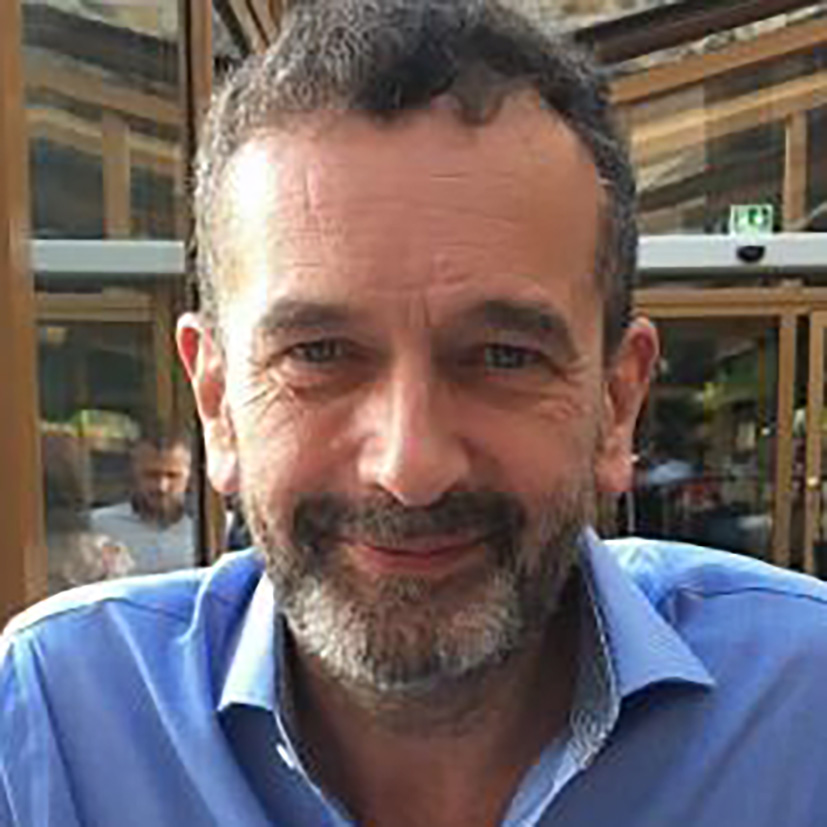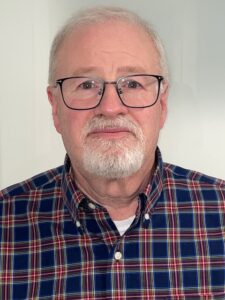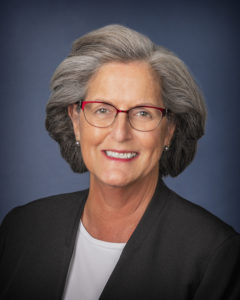
Impact of Health and Justice Research on Practice and Policy
Monday April 17th
Registration begins at 8:00 am on the 3rd Floor of TCU’s Brown Lupton University Union (BLUU). Continental breakfast with coffee and tea will be provided.

Dr. Best is Professor of Addiction Recovery at Leeds Trinity University, Honorary Professor of Regulation and Global Governance at The Australian National University and Adjunct Associate Professor of Addiction Science at Monash University (Melbourne). He is also President of the Recovery Outcomes Institute. He is also chair of the Prisons Research Network of the British Society of Criminology. Trained as a psychologist and criminologist, he has worked in practice, research and policy in the areas of addiction recovery and rehabilitation of offenders. He has authored or co-edited seven books on addiction recovery and desistance from offending, and has written more than 220 peer-reviewed journal publications and around 70 book chapters and technical reports. In 2019, he has produced a monograph entitled “Pathways to Desistance and Recovery: The role of the social contagion of hope” (Policy Press) and a co-edited volume entitled “Strength-based approaches to crime and substance use” (Routledge). He has led a longitudinal research study into pathways to recovery by gender in Scotland, England, Belgium and the Netherlands. His research interests include recovery pathways, recovery capital and its measurement, social identity theory and its implications for recovery, recovery and desistance, addiction treatment effectiveness particularly in prison settings, prison and community connections, and family experiences of addiction and recovery.

Gerasimos D. Papanastasatos, Doctor in Social Studies, is a sociologist – criminologist. Since 1992, he has been working at the Therapy Center for Dependent Individuals’ (KETHEA) Research Department holding the position of the Department’s Head. He has been involved in addictive behavior research since the late 1980s, designing and implementing research programs to evaluate treatment, prevention and education projects for professionals. Due to his expertise on the field of psychoactive substances addiction, he has developed research projects for treatment evaluation efforts based on policy and strategic plans in national and global level. He is international evaluator of research proposals at European level. Because of preparation requirements of candidate countries aiming to support their affiliation to European Union, including development of adequate structures and institutions, he participated to the expert and technical groups, which provided education and training in building information collection and monitoring systems. As part of his research activity, he has participated in committees for the development of information systems and evaluation of research applications in many countries. As principal trainer, he organizes training programs and he is principal participant to special workshops related to research in the field of addictive behaviors, treatment services development, research instruments use, as well as methodology of evaluating interventions, programs and policies. Beside his firm collaboration with Universities in Athens, Thessaloniki and Cyprus he teaches as visitor lecturer in relevant University Departments mainly subjects relating to addictive behavior, program development methodology, resource finding, group dynamic research methodology, evaluation research and ethics. He participates in many national and international committees as an expert and he has a significant number of publications. He is supervises many evaluation programs in Greece and abroad as well as programs aiming to investigate, search and develop policies, strategy and action plans.
As certified Addiction Counselor (ICRC) he is evaluator for the certification of new members. He is member to many relevant professional and scientific associations, member of the editorial board of scientific journals and reviewer of scientific articles, as well as member of scientific committees and organizing committees of international and national conferences. He has been in charge as Special Secretary to the Board of the Hellenic Palliative Care Society for Children and Adolescents and their Families. During the Greek Presidency, the first 2014’s semester, to the Council of the European Union, he was been appointed to Council of the European Union Horizontal Drug Group’s Vice-Chair. He is an alternate member of the Board of EMCDDA, representative of Greece in the Bureau and member of the permanent Greek delegation of the Council of Europe’s Pompidou Group, representative of the UN Commission on Narcotic Drugs and the Horizontal Drug Group of the Council of the European Union.

Dr. Dwayne Simpson came to the IBR for graduate training in 1966 and never left. His tenure as its Director began during a temporary move to Texas A&M University (1982-1989), followed by another 20 years after the IBR returned to TCU in 1989. In 2009, he became Emeritus Director. His research on drug addiction and treatment effectiveness (reported in over 300 publications) includes several large-scale and longitudinal national evaluations. He later focused his attention on assessments of client functioning and service delivery process, and how these factors influence treatment engagement and retention rates, stages of recovery, and long-term outcomes. This work includes cognitive and behavioral interventions to enhance client services as well as improvements in program management. It also extended to the study of organizational behavior and its role in transferring evidence-based innovations into practice in community and criminal justice settings. Thus, assisting leadership teams in developing comprehensive but practical strategies for implementing innovations has been a priority for him. Simpson has been an advisor to national and international research centers and government organizations that address drug treatment and related policy issues, a Fellow in both the American Psychological Association and American Psychological Society, and has served on the editorial boards for several journals.

Dr. Pat Flynn arrived at TCU and the IBR in 2000 and spent the next enjoyable 20 years working with incredibly dedicated professionals conducting behavioral research to improve health service delivery systems. Before his time at TCU, Dr. Flynn worked in therapeutic community, methadone, and outpatient drug-free treatment programs in several capacities, and served in upper-level management positions in higher education accompanied by professorial appointments. He retired from TCU in June 2020 as an Emeritus Professor. He and his wife Carrie then happily relocated to the Sub-tropics in South Florida to enjoy an ambitious new chapter of their lives. That includes fly-fishing with Don Dansereau and David Cross, reading, exercising, and watching spring training baseball in addition to an outdoor lifestyle with more bicycle transport than automotive. He will always be grateful to TCU/IBR associates for their hospitality and support. He will forever remember the times spent and many travels with colleagues that included intellectual discussions about lofty ideas and ways to better improve and enjoy life. Sin che si vive, s’impara sempre.

Dr. Bennett Fletcher graduated from Texas Christian University in 1985. He joined NIDA in 1987 and became a Senior Research Psychologist in the Services Research Branch. While at NIDA, he established large-scale longitudinal drug abuse treatment outcome research programs for adults and adolescents. He helped create research programs to reduce HIV infection, to improve outcomes for female addicts, and to improve treatment outcomes for those in the criminal justice system. He was fundamental in creating a research emphasis on the organization, financing, and management of drug abuse treatment and health services. He retired from NIDA in 2012.

Dr. Pete Delany is currently a research associate professor at the National Catholic School of Social Service (NCSSS) at the Catholic University of America where he conducts substance abuse and mental health services research focusing on service delivery. He also continues research collaborations examining issues around homeless veterans. He retired from the United States Public Health Service Commissioned Corps in 2018 after serving in a number of positions across the Department of Health and Human Services including the National Institutes on Drug Abuse, the National Institute on Alcohol Abuse and Alcoholism, the Office of the Associate Secretary and for Policy and Evaluation, and as the first Director of the Center for Behavioral Health Statistics and Quality at the Substance Abuse and Mental Health Services Administration. He also served as a senior advisor for data policy at the Office of National Drug Control Policy.

After more than a decade conducting research in correctional and substance abuse treatment settings, Dr. Brown joined the National Institute on Drug Abuse where he headed up units engaged in the support of research initiatives designed to determine the efficacy of innovative treatment strategies as well as existing treatment strategies. In that capacity he worked with staff of the Institute of Behavioral Research at TCU, overseeing the many contributions the IBR was making to our understanding of the nature and effectiveness of drug abuse treatment.

Dr. Wayne Lehman has been a Senior Research Scientist at the IBR since 2009. Dr. Lehman began as a graduate research assistant in 1978 and worked as a research scientist for the Behavioral Research Program at Texas A&M University from 1982 to 1989. He returned to TCU IBR as a scientist for 13 years conducting research on substance use in the workplace and assessment of organizational factors of drug treatment programs. In 2002, he went to work as a senior statistician for the Litigation Support Services division at a consulting firm in Colorado, and subsequently as a statistician with Project Safe at the University of Colorado in Denver where he conducted research on HIV prevention among out-of-treatment drug users in Colorado and the Ukraine. Since returning to the IBR in 2009, he is been PI for the DRR-1 and DRR-2 Projects developing and testing a curriculum to improve decision-making around health risk behaviors among people in prison-based substance use disorder treatment and a mobile app for improving decision-making around health risk behaviors for people on probation. He has also recently helped to develop a mobile app for the Iowa Department of Corrections and is currently overseeing core components of a large evaluation for the Bureau of Prisons. In addition to these activities, he serves on the editorial board for the Journal of Substance Abuse Treatment and has served as a reviewer for NIH study sections and special emphasis panels.

Moderator: Dr. Danica Knight
Dr. Danica Knight is the Rees-Jones Director of the Karyn Purvis Institute of Child Development (KPICD) and Professor of Psychology at Texas Christian University (TCU). Upon completion of her PhD in 1992, Dr. Knight joined the IBR as a Research Scientist until moving into her role as Associate Director of Research at the KPICD in 2019. She now serves as a collaborating scientist with the IBR.
This video presentation will highlight how the Institute of Behavioral Research and the National Institute on Drug Abuse have collaborated on multiple grant-funded projects.

Dr. Sandra Springer is a Professor of Medicine in the Department of Internal Medicine, Section of Infectious Diseases at the Yale University School of Medicine. She is also an attending at the Veterans Administration Connecticut Healthcare System and directs the VA Newington, CT Infectious Disease Clinic. She received a BA from Harvard University, an MD from University of Massachusetts Medical School, and completed her Internal Medicine Residency and Infectious Disease Fellowship at Yale. She has significant clinical and research experience with persons with and at risk of HIV and substance use disorders (SUD) including within the criminal justice system. She is the Director of InSTRIDE (Integrating Substance Use Treatment Research with Infectious Disease treatment for Everyone) at the Yale School of Medicine where she and her team conduct clinical research on the integration of SUD and Infectious Disease/HIV prevention and treatments. In particular, she has focused on evaluating medication treatments for opioid and alcohol use disorders to improve substance use and ID/HIV treatment for persons involved with the criminal justice system. She is currently a Principal Investigator on 6 NIH grants and 1 VA Cooperative Studies award. In addition, Dr. Springer was awarded an Avant Garde Award by NIDA in June of 2022 to evaluate a cutting-edge mobile innovative program to provide medication treatment of OUD integrated with PrEP/ HIV treatment for people who use drugs wherever they live with mobile pharmacies, telehealth, and community health workers. She has presented her research numerous times both nationally and internationally and has published over 100 manuscripts and book chapters.

Dr. Ank Nijhawan, MD, MPH, MSCS, is an infectious diseases physician and researcher at the University of Texas Southwestern Medical Center in Dallas, TX. Dr. Nijhawan received her medical degree at UT Southwestern and completed internal medicine residency at Parkland Hospital/UTSW. She trained in Infectious Diseases/HIV at Massachusetts General Hospital and Brigham and Women’s Hospital in Boston, MA and completed a Master’s in Public Health at the Harvard School of Public Health. Dr. Nijhawan currently works at Parkland Hospital and the Dallas County Jail, where she provides HIV and STI care and conducts clinical research. Her research centers on the overlap of infectious diseases and substance use, with a particular focus on improving HIV treatment and prevention in people who are incarcerated or recently released.

Dr. Lynnette Howington is a TCU Nursing Alumni who has been part of the nursing faculty since 2007. She is a Women’s Health Nurse Practitioner and enjoys the combination of teaching and practice.
Dr. Howington would like to thank the IBR for supporting her involvement with the ACTION project.

Dr. Scarborough is Core Faculty for the Emergency Medicine Residency at John Peter Smith Hospital, which includes patient care, resident supervision, and additional academic duties. He is a clinical provider for the TCU-ACTION study, which focuses on HIV prevention and opioid use disorder treatment for individuals with recent justice-system involvement.
He attended TCU for his undergraduate studies and received his MD from Baylor College of Medicine. Dr. Scarborough completed a Fellowship in Street Medicine at JPS in 2021-2022.

Dr. Dustin DeMoss completed his undergraduate medical education at the Texas College of Osteopathic Medicine in 2009. He then attended a 5 year combined residency in Internal Medicine and Psychiatry at Tulane University in New Orleans, Louisiana. After serving as a chief resident for 4 years, he graduated from his residency program and moved back to Fort Worth, Texas with his wife and young children. Upon settling in Fort Worth, he joined the University of North Texas Health Science Center (UNTHSC) and John Peter Smith (JPS) Hospital to begin work on research, education, and quality patient care obtaining his Addiction Medicine Board Certification along the way. Currently, Dr. DeMoss is an Associate Professor at UNTHSC and Texas Christian University (TCU) and serves as the Psychiatry Residency Training Director and the Vice Chair of Education for the Department of Psychiatry and Behavioral Health. Clinically, Dr. DeMoss is passionate about treating those with substance use disorders and has helped spearhead JPS’ effort to start a clinical service line dedicated to this cause.

Moderator: Randi Proffitt
Randi Proffitt received her Ph.D. in Experimental Psychology with a focus in social and evolutionary health psychology from Texas Christian University. She is currently an Associate Research Scientist with the IBR and an Assistant Professor of Medical Education for the TCU & UNTHSC School of Medicine. Before joining the IBR team in June 2021, Randi was a lecturer for the John V. Roach Honors College, and has served as a coordinator of community medical research at the Texas College of Osteopathic Medicine (TCOM) and Cook Children’s Health Care System. She has experience recruiting diverse sample populations with tightly controlled inclusion criteria including individuals with specific health condition, Spanish-speakers, and children in specific age groups. She also has experience collecting and processing biological samples, running immunoassays, as well as cleaning and analyzing behavioral and biological data. Her research interests focus on how basic, laboratory science can be translational and applied to real-world settings. Her research agenda to date has focused on using an adaptive behavioral framework grounded in evolutionary science to understand health disparities among low income, justice-involved, and medically underserved populations. Her work strives to reframe how commonly deemed “bad” health behaviors are viewed in research, clinical practice, and policy by shedding light on the adaptive nature of these behavioral responses to environmental stimuli. Areas of interest include risky sexual decision-making and sexually transmitted infections, adherence to HIV and Hepatitis C infection prevention strategies, and other risky health behaviors such as eating in the absence of hunger and substance use in high-risk populations. She currently works on the ACTION project.

Dr. Danica Knight is the Rees-Jones Director of the Karyn Purvis Institute of Child Development (KPICD) and Professor of Psychology at Texas Christian University (TCU). Upon completion of her PhD in 1992, Dr. Knight joined the IBR as a Research Scientist until moving into her role as Associate Director of Research at the KPICD in 2019. She now serves as a collaborating scientist with the IBR.
Her research includes large-scale projects designed to improve mental health and substance use outcomes among youth and young adults. She has authored numerous scientific articles on trauma-informed prevention interventions, improving linkages to social support and substance use services, and strategies for supporting successful implementation of new practices.
Dr. Knight’s most recent NIH/NIDA-funded grant, Leveraging Safe Adults (LeSA), examines the effectiveness of Trust-based Relational Intervention® (TBRI®) in preventing substance use among justice-involved youth as they transition home after secure residential care. She serves as one of the Multiple PIs for the TCU hub of NIDA’s Justice Community Opioid Innovations Network (JCOIN) and Substance Use and Health Risk Intervention for Justice-Involved Youth (SUHRI), and PI for Family Assessment, Linkage, and Motivation Intervention (FAMLI). In addition, Dr. Knight serves as PI for KPICD’s Center for the Adaptation and Implementation of TBRI (CAIT), funded as part of SAMHSA’s National Child Traumatic Stress Network.

Greg Sumpter, Ph.D. is currently the Director – Chief Juvenile Probation Officer of Grayson County Juvenile Services in North Texas. He has been in public service and worked with youth and families for almost three decades. Greg is a member of Motivational Interviewing Network of Trainers (MINT), and currently serves on the Professional Development Committee of that organization. Greg is a Trust Based Relational Intervention (TBRI) practitioner. Greg enjoys sports and all forms of storytelling, including film and books. In the past several years, he has ventured out into writing and publishing a few books, one on the history of juvenile justice, one on a new theory of leadership (Need Based Leadership), and the other a mystery novel around social justice issues. His Bachelor’s degree (Criminology; Arkansas State University) and Master’s degree (Criminal Justice & Management; Sam Houston State University) were focused on criminal justice and his doctoral work was in leadership (Leadership Studies; Dallas Baptist University).

Dr. Matt Shelton is the Assistant Executive Director at the Harris County Juvenile Probation Department located in Houston, TX. Dr. Shelton has worked for the Juvenile Probation Department for nearly 20 years, which began with a post-doctoral fellowship in juvenile forensic psychology. Most recently Dr. Shelton oversaw three residential facilities and helped to implement trauma-informed care (TBRI) and restorative practices throughout the organization.

Debi Joy has over 25 years of experience working in correctional settings with male, female, adult and juvenile populations. In her current role with the Illinois Department of Juvenile Justice, she oversees the creation and implementation of substance use disorder services within IDJJ. She is a strong advocate for constant improvement within the juvenile justice system to focus on meeting the changing needs of today’s youth. Debi has been an integral part of Illinois’ participation in several projects with TCU’s Institute of Behavioral Health over the past 20 years and currently serves as Illinois’ liaison for the LeSA project.

Moderator: Elaine Tinius
Elaine joined the IBR team in January 2020 as the Project Coordinator for the LeSA study. She transitioned from a background of social work, where the majority of her career had been rooted in the child welfare arena, directly serving families and vulnerable youth. She has completed both undergraduate and graduate studies in Social Work, and is a TBRI practitioner.
Elaine has a passion for combatting abuse and neglect, focusing on effective ways to support and impact children, youth, and families. Her experience includes investigations, permanency work, as well as family preservation, implementing foster care systems, curriculum facilitation, and partnering with the legal system in numerous capacities. Elaine believes all young people deserve and are meant to connect to a positive, caring, supportive, and nurturing caregiver. She works to advocate, educate, and empower others to be more trauma informed, believing everyone possesses their own unique catalogue of experiences.

Dr. Jen Pankow celebrated her 11th anniversary in 2021 as a member of the TCU IBR investigator team. Prior to completing her graduate studies in 2010 in Experimental Psychology at TCU, she served in different roles working with adults receiving substance use treatment at the Illinois Sheridan Correctional Center. Her experience at Sheridan as a case manager with TASC Inc. and as a licensed substance use counselor with Gateway Foundation and Westcare agencies, provided clinical experience that continues to inform her research at the IBR. In the past decade, she has collaborated on two large-scale federal research initiatives as Project Director: the 6-year Criminal Justice Drug Abuse Treatment Studies (CJ-DATS 2) protocols; one testing implementation strategies designed to improve access to HIV care in the community, and a second study testing organizational strategies to implement medication-assisted treatment options for individuals with an opioid and/or alcohol addiction. As Project Director on the 6-year Sustainable HIV Risk Reduction Strategies for Criminal Justice Systems Project (DRR2), she was instrumental in developing and testing an app for improving decision-making skills to reduce health risks for adults on probation. She also served as an Investigator on the Juvenile Justice Translational Research on Interventions for Adolescents in the Legal System (JJ-TRIALS), and is lead author on a study being prepared for submission that examines the mediating effect of substance use treatment on recidivism for youth under supervision.
Currently, Dr. Pankow serves as PI on the Telehealth-Clinical Advocacy Project (T-CAP) funded by NIDA. The two-year project is a feasibility study testing a multidisciplinary telehealth intervention integrated within a state-supported police opioid diversion program. Additional roles include Investigator on the Juvenile Justice Translational Research on Interventions for Adolescents in the Legal System (JJ-TRIALS) and as the Coordinator for qualitative research and staff training across IBR projects. Additionally, she is the faculty sponsor for the IBR Undergraduate Student Lab—Student Overview of Applied Research (SOAR).

Amanda received her Ph.D. in experimental psychology from Texas Christian University and is currently as Associate Research Scientist with the IBR. Her primary role is as data lead for the Justice Community Opioid Innovation Network (JCOIN) project, overseeing statistical analyses and model testing for multi-level and structural statistical models, as well as qualitative data collection and analyses. She is responsible for designing the structure of platforms to support client tracking, staff tracking, survey development, data collection, and compilation of data files. She is also overseeing the submission of IBR project data to national archives. Additionally, Amanda manages the undergraduate Student Overview of Applied Research (SOAR) Lab, assisting students with the development and implementation of novel community impact projects within Tarrant County.

Stephanie Villaire is a second year PhD student under Dr. Kevin Knight, in TCU’s Experimental Psychology program. Her work focuses on HIV and substance use, with particular interest in prevention education. In her time at the IBR, Stephanie also works closely with students in the SOAR lab. Along with leading undergraduates through research projects, she mentors students one-on-one through project development and grant applications, all the way through to conference presentations and publications.

Brooke Preston joined the IBR team in August 2021 as an Undergraduate Research Intern. Brooke earned her Bachelor of Science in Psychology from TCU in December 2022 and now works as a part-time Research Assistant. Brooke works on the JCOIN, SUHRI, and FAMLI projects and is a small group leader in the IBR SOAR Lab.

Vinisha is a second-year undergraduate student studying Neuroscience and Spanish for the Health Professions on the pre-med track at TCU. While initially joining the first tier of SOAR lab in the fall of 2021, she decided she wanted to get more involved in the IBR’s work. She joined the IBR as an undergraduate research assistant in the Spring of 2022 and began working as a student intern in the spring of 2023. While working at the IBR, Vinisha hopes to learn and experience as much as she can in the field of public health research to prepare her for a career in medicine.

Faith Moore-Thomas is a third year Speech and Language Pathology major with a minor in Psychology. She has been involved in the SOAR Lab since August 2022 and could not be more grateful for the hands on research experiences, friendships, and being able to work with such talented faculty. She would like to thank the Institute of Behavioral Research and the SOAR Lab for the consistent support and she cannot wait to continue with her time there.
Join us as we celebrate 60 years of the IBR with a toast, student poster presentations and a round of IBR themed trivia!
Tuesday April 18th

Dr. Jennifer Becan joined the IBR in 2006 and has served as both Investigator and PI on NIDA-funded research projects investigating substance use treatment processes, intervention adaptation and effectiveness, and the role contextual factors and implementation strategies play in improving treatment services. Dr. Becan currently serves as a PI on two NIDA-funded projects – Mapping Approaches to Prepare for Implementation Transfer (MAP-IT) and Substance Use and Health Risk Intervention (SUHRI). MAP-IT examines the preliminary intervention efficacy and skill development among agency leadership and frontline staff regarding the deliberate, ongoing, and agency-driven preparation for implementing evidence-based practices. SUHRI assesses the feasibility of a unique, tablet-based intervention to teach and encourage positive, prosocial, and healthy behavioral choices as well as enhance the motivation for justice-involved youth to enroll and participate in substance use treatment and related health services.
Dr. Becan serves as Project Director on the Family Assessment, Motivation, and Linkage Intervention (FAMLI), which is developing and testing a caregiver-youth intervention designed to increase motivation for change and facilitate successful navigation of logistical challenges (e.g., how to recognize and overcome a problem and how to find help when you need it). Additionally, Dr. Becan serves as an Investigator and Project Director for the TCU hub of the Justice Community Opioid Innovation Network (JCOIN). This five-year project targets opioid use disorder (OUD) and is designed to increase access to and retention in behavioral health and medication-assisted treatment programs among adults involved in the justice system.
Dr. Becan also serves as an Investigator on the ACTION study, a 5-year project designed to compare two models of linking and retaining individuals recently released from custody to community-based HIV and OUD prevention and treatment service cascades of care. Dr. Becan serves as a grant reviewer for both NIH and SAMHSA, is a recipient of the NIH Training Institute Award for Dissemination and Implementation Research on Health (TI-DIRH), and serves on the Addiction Health Services Research (AHSR) conference planning committee.

Dr. Pam Carey began her criminal justice career in the juvenile justice system, working with the Texas Youth Commission. After serving several years in juvenile justice, she transitioned to the adult system to work with the Texas Department of Criminal Justice (TDCJ). Prior to retiring from the State of Texas in January 2020, Pam worked fifteen years with the TDCJ in numerous positions to include twelve years as the Deputy Director of Substance Abuse Treatment (SATP). While serving as the Deputy Director of SATP, Pam provided clinical oversight to numerous treatment programs to include the TDCJ Substance Abuse Felony Punishment Facilities, In-Prison Therapeutic Community, Pre-Release Substance Abuse, State Jail Substance Abuse, and Driving While Intoxicated. Pam also managed the TDCJ’s clinical training institute and initiated the implementation process for the agency’s technology-assisted treatment program to provide treatment for offenders in rural areas with opioid use disorders. Pam’s background also includes over five years with the Texas Department of Health and Human Services and fifteen years in higher education, teaching in the fields of criminal justice and business. She currently serves as a criminal justice program consultant and maintains several credentials to include a Certified Criminal Justice Addiction Professional (CCJP), and Peer Recovery Specialist (PRS) (both International Reciprocity status); Recovery Support Specialist (RSPS); and a Doctorate in Public Administration, specializing in general public administration. She is a member of the Texas Association of Addiction Professionals, and a board member of the Texas Certification Board (TCB), where she also chairs the TCB Criminal Justice Committee.

Dr. David Olson is a Professor in the Criminal Justice and Criminology Department at Loyola University Chicago, and is also the Co-Director of Loyola’s interdisciplinary Center for Criminal Justice. For nearly 20 years, Dr. Olson worked at the Illinois Criminal Justice Information Authority, where he was the director of Illinois’ Statewide Drug and Violent Crime Control Strategy Impact Evaluation Program and was responsible for overseeing the evaluation and monitoring of federally funded drug and violent crime control efforts in the State of Illinois. During his 35 years in the field of criminal justice, David has worked with a variety of federal, state and local agencies to develop and evaluate programs and policies, particularly in the area of community and institutional corrections. Dr. Olson current serves on the advisory boards of the Illinois Department of Corrections, the Illinois Department of Juvenile Justice, and the Illinois Criminal Justice Information Authority through separate gubernatorial appointments, and the Illinois Supreme Court Commission on Pretrial Practices Implementation Task Force.
Dr. Olson received his B.S. in Criminal Justice from Loyola University Chicago, his M.A. in Criminal Justice from the University of Illinois at Chicago, and his Ph.D. in Political Science/Public Policy Analysis from the University of Illinois at Chicago, where he was the recipient of the Assistant United States Attorney General’s Graduate Research Fellowship.

Dona Howell has a Master’s Degree in Administration of Justice and Addictions, with over 40 hours post-graduate work in Community Health Education with a specialty area in Substance Use Treatment for Justice Involved Individuals. Certified at both the state and national level as an SUD counselor, Ms. Howell has held positions on the Illinois Certification Board and worked in the field of substance use treatment as well as with the Illinois Department of Corrections as the SUD Program Manager for the past 40 years. Ms. Howell has over 30 years of experience working with criminal justice systems and serving as a consultant and trainer to multiple state and national agencies around staff development and training, substance use disorder program implementation, and systems development. She currently an Illinois Certification Board Member Emeritus and working with local treatment agencies around staff recruitment and training.

Matthew Hiller, PhD is an Associate Professor in the Department of Criminal Justice at Temple University. Previously, we worked as an associate scientist in the Institute of Behavioral Research at Texas Christian University and as an assistant research professor at the Center on Drug and Alcohol Research at the University of Kentucky. He has been an author on over 70 peer-reviewed publications, with recent work appearing in Health and Justice and in an edited book entitled The History and Future of Correctional Psychology. His research expertise includes health services research, implementation science, substance use disorders, evaluation of criminal justice-based interventions substance misuse and for mental illness, HIV/AIDS, courts, and probation and parole. The paper he is presenting at this conference is from data collected when he was a visiting scholar a the Public Health Management Corporation (PHMC) in Philadelphia. The focal point for this presentation is the Forensic Intensive Recovery (FIR) program which is a prison decarceration program that provides a warm handoff of parolees to community-based substance use treatment.

Sarah L. Desmarais, Ph.D. is the President at Policy Research Associates, Inc. (PRA), a women-owned small business with the mission of creating positive social change for people and communities through technical assistance, research, and training. She is responsible for the strategic priorities of PRA and oversight of PRA operations. Dr. Desmarais received her Master’s and PhD in Forensic Psychology and Law from Simon Fraser University and completed a postdoctoral fellowship in Population and Public Health at the University of British Columbia. Prior to joining PRA, Dr. Desmarais was a tenured Professor of Psychology at North Carolina State University where she also served as the Director of the Center for Family and Community Engagement. Before that, she was an Assistant Professor at the University of South Florida with joint appointments in the Department of Community and Family Health and the Department of Mental Health Law & Policy. Dr. Desmarais works on issues at the intersection of public health, community safety, and social justice. Her current research is focused on evidence-based practices for reducing detention rates, especially among people with behavioral health needs. Dr. Desmarais has authored more than 130 peer-reviewed publications and has served as principal investigator and co-investigator on grants and contracts from agencies including the National Institutes of Health, the National Institute of Justice, and the National Science Foundation.

Gregg Dockins currently serves as the Division President of Corrections Services, for the Gateway Foundation, which is headquartered in Chicago, Illinois. He has served as the senior executive over Corrections Services since 2016, and as such, he provides administrative oversight over Gateway’s portfolio of correctional treatment services. The Corrections Division currently operates over ninety (90) service locations and treatment programs with over 12,000 beds under contract throughout Florida, Georgia, Michigan, Missouri, New Jersey, Texas and Wyoming. He is responsible for ensuring quality of care to clients; compliance with contract requirements and licensure and accreditation standards; promotion of the organization to appropriate correctional/state agencies; adherence to budgetary and sound fiscal requirements; promotion of prudent human resources practices; and development of new business opportunities.
Mr. Dockins began his career at Gateway in 2000, when he was hired to lead Gateway’s Help Is Possible Facility, a community-based transitional treatment center in Dallas, Texas. In 2005, he transferred to Illinois to serve as Gateway’s Program Director at the 950-bed Sheridan Correctional Center Therapeutic Community (Illinois Department of Corrections). His responsibilities in that capacity included administrative and clinical oversight functions for the DASA-licensed Therapeutic Community. Mr. Dockins later served as the Director of Corrections Initiatives from 2006 to 2013, where he managed the solicitation and procurement of contract business for the Corrections Division and various other development and marketing assignments. He was promoted to Vice President of Corrections in 2013, where he resumed operational oversight over corrections treatment programming for Gateway. Throughout his 30+ years of experience in the provision of behavioral health services, Mr. Dockins has managed a variety of mental health and substance use disorder (SUD) treatment programs in both community and correctional settings.
Mr. Dockins holds a bachelor’s degree in Psychology and English, from Wayland Baptist University (Planview, TX); and completed Master’s coursework in Sociology at the University of Texas at Arlington. He is an internationally Certified Criminal Justice Addictions Professional (CCJP) and has been a licensed substance abuse counselor (Texas: LCDC) since 1991. Mr. Dockins has co-authored manuals on chemical dependency counselor training, has been a contributing author to college textbooks, is a seasoned trainer on SUD treatment models, therapeutic communities, and counseling approaches. He has dedicated his career to advancing services that reduce recidivism and rebuild lives through the provision of high-quality care for individuals caught in the nexus between Substance Use Disorders and the Criminal Justice System.
Join us at 3034 Sandage Avenue to tour the IBR and our Mobile Health Unit. The building will be open to visitors until 2:15pm.
Conference location is TCU’s BLUU Ballroom located on the 3rd Floor. For an interactive campus map visit maps.tcu.edu